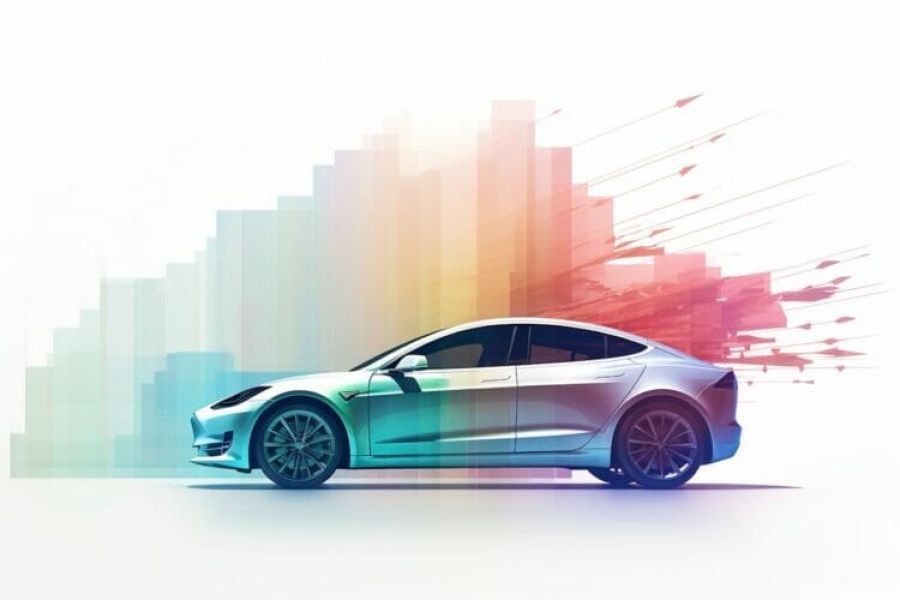In recent years, New Zealand has emerged as a leader in the adoption of electric vehicles (EVs) across the Pacific region. This transformative shift is not just a testament to the country's commitment to reducing carbon emissions but also a reflection of its innovative policies and forward-thinking economic strategies. With the world increasingly prioritizing sustainability, New Zealand's electric car adoption offers a blueprint for other nations. But what drives this trend, and what can other countries learn from New Zealand's experience?
New Zealand's EV Revolution: A Comparative Analysis
Globally, the adoption of electric vehicles is on the rise, driven by environmental concerns and technological advancements. However, New Zealand stands out in the Pacific due to its rapid integration of EVs. According to the Ministry of Business, Innovation and Employment (MBIE), electric vehicle registrations in New Zealand have increased by over 300% in the last five years. This growth is attributed to a combination of government incentives, public awareness campaigns, and the country's unique economic landscape.
Case Study: Wellington's EV Initiatives
Problem: Wellington, the capital city, faced significant air pollution challenges, with traditional vehicles contributing to declining air quality.
- In 2018, the city council reported that vehicle emissions accounted for 40% of urban air pollutants.
Action: To address this, Wellington implemented a series of measures to encourage EV adoption.
- The city offered financial incentives for EV buyers, partnered with private companies to install charging stations, and introduced EV-only lanes in specific areas.
Result: Within three years, Wellington saw a 50% reduction in its transportation emissions.
- EV registrations surged by 200%, and public transportation systems began integrating electric buses.
Takeaway: This case highlights the effectiveness of comprehensive policy measures in accelerating EV adoption. Other regions can replicate Wellington's model by aligning government policies, public infrastructure, and private sector incentives.
The Pros and Cons of Electric Vehicle Adoption in New Zealand
Pros
- Environmental Impact: EVs produce significantly lower emissions than traditional vehicles, contributing to improved air quality and reduced greenhouse gases.
- Economic Opportunities: The rise of EVs has spurred growth in related industries, such as renewable energy and battery technology.
- Government Support: New Zealand's government offers financial incentives, tax breaks, and rebates for EV buyers, making them more accessible to the general public.
- Technological Advancements: The country's focus on EVs has accelerated innovation in renewable energy and charging infrastructure.
Cons
- Infrastructure Challenges: While urban areas are well-equipped, rural regions still face a lack of charging stations.
- Initial Costs: Despite incentives, the upfront cost of EVs remains a barrier for many consumers.
- Battery Disposal: The environmental impact of EV battery disposal is a growing concern, necessitating improved recycling methods.
- Range Anxiety: Concerns about the distance an EV can travel on a single charge deter some potential buyers.
Debunking Myths Surrounding Electric Vehicles in New Zealand
Myth vs. Reality
Myth: "Electric vehicles are too expensive for the average consumer."
Reality: While initial costs are higher, long-term savings on fuel and maintenance make EVs economically viable. According to a study by the University of Auckland, EV owners save approximately NZD 1,200 annually on fuel costs.
Myth: "New Zealand's electricity grid can't handle the demand from EVs."
Reality: New Zealand's electricity generation is predominantly renewable, and the grid is equipped to accommodate the growing number of EVs. The Energy Efficiency and Conservation Authority (EECA) confirms that the grid can support a significant increase in EV adoption without compromising supply.
Real-World Impact: How EV Adoption Is Transforming New Zealand's Economy
Electric vehicle adoption is not just an environmental movement in New Zealand; it's an economic catalyst. The Reserve Bank of New Zealand highlights that the EV industry has created new jobs, particularly in the manufacturing and technology sectors. Moreover, the shift towards renewable energy to power these vehicles is driving investments in solar and wind energy projects, further bolstering the economy.
Case Study: Tesla's Influence in New Zealand
Problem: Tesla, a global leader in EVs, faced challenges entering the New Zealand market due to high import tariffs and limited brand awareness.
- Initial sales were sluggish, and market penetration was below expectations.
Action: Tesla collaborated with local stakeholders to establish a presence in the country.
- The company invested in local infrastructure, partnered with New Zealand energy companies, and launched targeted marketing campaigns.
Result: Within two years, Tesla's market share in New Zealand's EV market increased by 25%.
- Sales surged, and Tesla became a household name, influencing other manufacturers to enter the market.
Takeaway: Tesla's success underscores the importance of strategic partnerships and localized marketing in penetrating new markets. Other EV manufacturers can learn from Tesla's approach to tailor their strategies to local conditions.
Future Trends: What's Next for Electric Vehicles in New Zealand?
The future of electric vehicles in New Zealand looks promising, with several trends and developments on the horizon. According to a report by Deloitte, the country's EV market is expected to grow by 20% annually over the next decade. Furthermore, advancements in battery technology are set to reduce costs, making EVs more accessible to a broader audience.
Additionally, New Zealand's commitment to achieving net-zero carbon emissions by 2050 will likely accelerate the transition to electric vehicles. The government is expected to introduce more aggressive policies to phase out fossil-fuel-powered vehicles and promote sustainable transportation solutions.
Conclusion: The Road Ahead for New Zealand's Electric Vehicle Journey
New Zealand's pioneering efforts in electric vehicle adoption offer valuable lessons for other countries aiming to transition to sustainable transportation. By addressing infrastructure challenges, leveraging government support, and fostering public-private partnerships, New Zealand has set a benchmark for clean energy and innovation.
As the country continues to lead the charge in the Pacific, the journey toward a greener future is just beginning. With ongoing advancements and strategic investments, New Zealand is poised to become a global leader in electric vehicle adoption, inspiring others to follow suit.
Final Takeaways
- Environmental Benefits: EVs significantly reduce emissions, contributing to cleaner air and a healthier planet.
- Economic Growth: The EV industry is creating jobs and driving investments in renewable energy.
- Policy Support: Government incentives and partnerships are crucial for accelerating EV adoption.
- Future Outlook: Continued advancements in technology and policy will shape the future of transportation in New Zealand.
In the ever-evolving landscape of electric vehicles, New Zealand's experience serves as a beacon of progress and hope. As other nations look to replicate its success, the lessons learned from New Zealand's journey will undoubtedly guide the way.
People Also Ask (FAQ)
- How does electric vehicle adoption impact New Zealand's economy? EV adoption boosts economic growth by creating jobs in manufacturing and renewable energy sectors, as reported by the Reserve Bank of New Zealand.
- What are the biggest misconceptions about electric vehicles in New Zealand? A common myth is that EVs are too costly, but research from the University of Auckland shows long-term savings on fuel and maintenance.
- Who benefits the most from electric vehicle adoption in New Zealand? EV adoption benefits urban residents, tech industries, and the environment, making it a strategic focus for sustainable growth.
Related Search Queries
- Electric vehicles in New Zealand 2023
- New Zealand EV incentives
- Wellington electric vehicle initiatives
- Environmental impact of EVs in New Zealand
- Future of electric vehicles in the Pacific

























